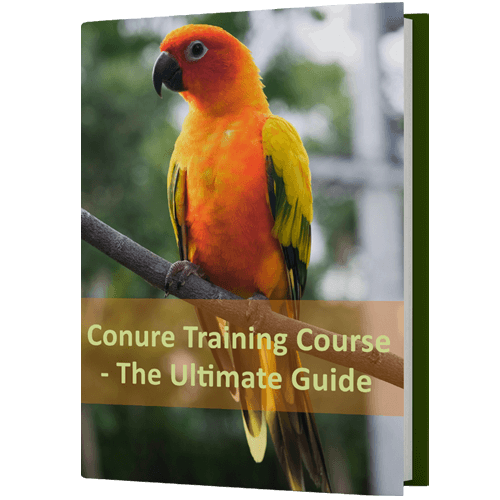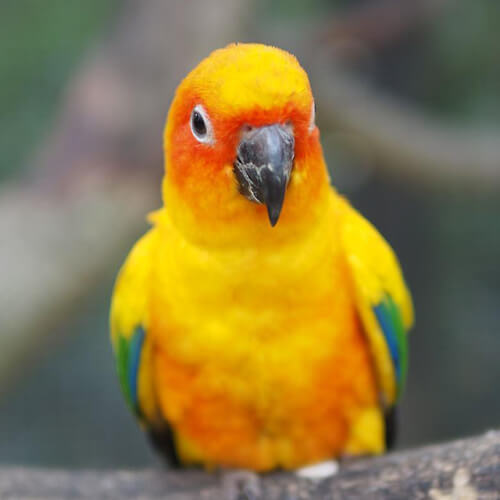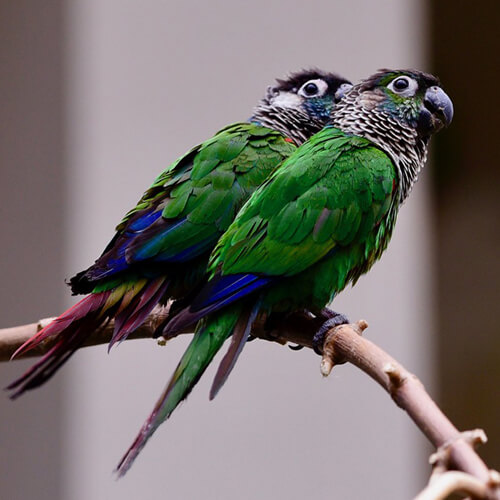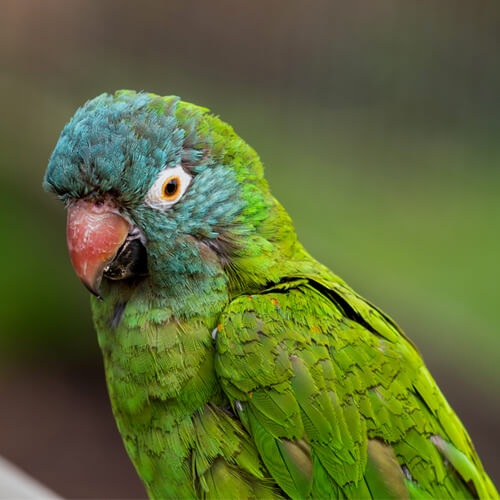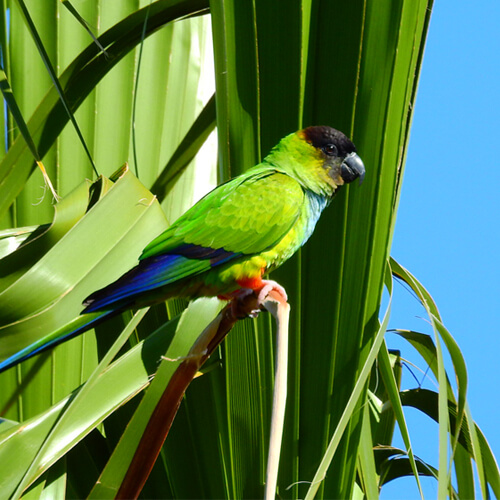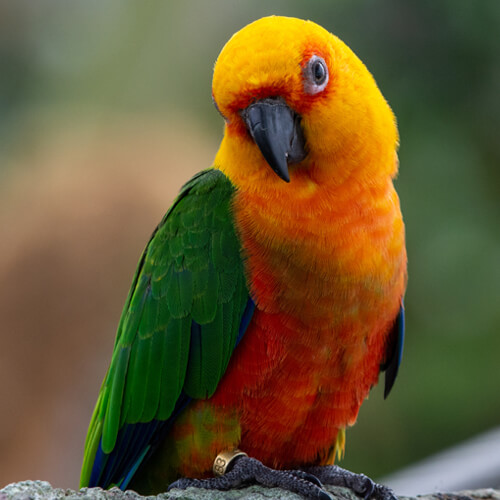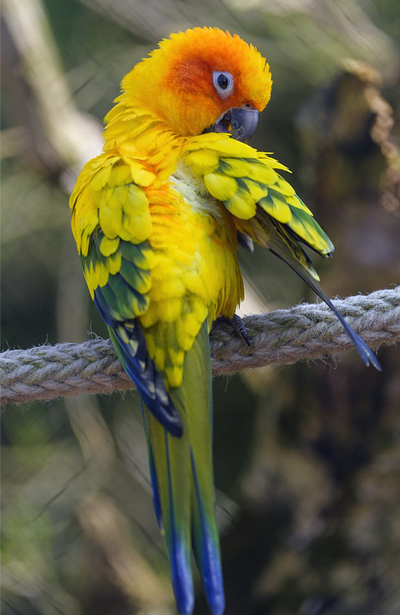
Learn All About Conures- Conure Origin, Temperament, Diet, Health & More…
The Conures are lightly built, with long tails (Conure literally means 'cone tail'). They come in a diverse range of colors. Conure beaks always have a small cere and are usually horn-colored or black. These birds are affectionate clowns who are a whole lot of fun to own.
Sign-up for the Free Course on Conure Training
Size: 30 cm / 12 inches
Life Expectancy: 15 - 20 years
Description
Their coloring is truly exquisite; you will find shades of gray, white, red and orange mixed with their basic green, depending on what part of the Latin American countries they are raised. They run in length approximately twelve and a half inches.
